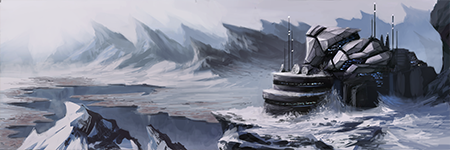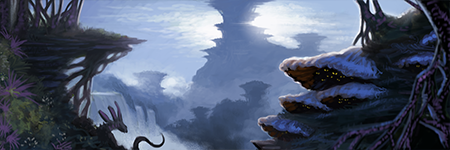Event chains
Mass Extinction Through the Ages is one of the 4 story event chains that can take place very early, having a 10% chance to occur. Unlike the other 3 event chains Mass Extinction Through the Ages is focused entirely on exploration.
Each Special Project requires a science ship and takes 60 days to complete.
Mass Extinction
Our first stumbling steps into the void beyond [homeworld name] were not motivated solely by curiosity, or a desire to conquer the unknown, or a need to leave our mark on the galaxy.
The biosphere of [homeworld name] has undergone rapid changes in the past few centuries, and prominent scientists warn that [homeworld name] may be faced with the beginnings of a mass extinction event; that cyclical purging of life that is inseparable from planetary existence in the greater cosmos.
A research plan has been put together to study a number of planets rendered uninhabitable by major astronomical incidents or planet-bound catastrophes. We hope that by reconstructing these events, a similar fate may be avoided for [homeworld name] and the [main species name] race.
It falls to you as [ruler title] of the [empire name] to ensure that this expedition is carried out.
Consult the Situation Log for details.
触发条件:
|
平均发生时间(MTTH):
10 days |
For a [main species adjective] future.
| |
Mass Extinction: Broken PlanetOur astronomers are confident that the asteroid belt in this system was once a habitable planet, torn asunder by unknown forces. A Special Project has been issued to study one of the major asteroids in the belt.
|
Mass Extinction: Burned PlanetOne of the planets orbiting this star bears the still-open wounds of some past calamity. Its surface is a roiling sea of half-melted minerals boiling into a superheated atmosphere, but [main species adjective] astronomers claim that it may once have supported life. A Special Project has been issued to study the molten planet.
|
Mass Extinction: Chilly PlanetThe planet of interest in this system is covered in layer upon layer of dense ices of varying composition. Apparently it was once home to more varied and pleasant biomes. A Special Project has been issued to investigate this possibility.
| ||||||||||||
Mass Extinction: Desolate PlanetA planet in this system still wears the fossilized traces of a past ecology on its sleeve. What could turn a thriving biosphere into a blasted wasteland? A Special Project has been issued to trace the source of this disastrous transformation.
|
Mass Extinction: Noxious PlanetAllegedly this [planet or moon]'s flora and fauna choked on their own poisonous emissions, likely helped along by the release of reactive gases from beneath the [planet or moon]'s crust. A Special Project has been issued to investigate the matter.
| ||||||||
Mass Extinction: AsteroidThe asteroid is in actuality a chunk of what was once a habitable, and probably inhabited, planet. Regular but overlapping fracture patterns indicate that the planetary demolition was intentional and controlled, if somewhat rushed. All signs point to this planet being the homeworld of whatever species destroyed it. We may never know what drove them to consider planetary annihilation to be the lesser evil, and perhaps we should be grateful for that.
|
Mass Extinction: MoltenThe unfortunate fate of the planet can be laid squarely at the feet of cosmic whims. Some gravitational disturbance (after eying the system's sun with some suspicion, our scientists named a transient space-time anomaly as the likely culprit) forced the planet from its natural orbit to one much too close to the sun. Although the planet is slowly spiraling out towards its original orbit, it has been cooking in the residual heat from the star ever since.
|
Mass Extinction: FrozenAn unnatural shift in the atmosphere's chemical make-up resulted in the slow but irreversible onset of an ice age - one that began before the formation of the [empire name] and is likely to persist long after our passing. The exact cause remains unknown, but probable explanations include failed terraforming attempts or even intra-planetary terrorism. Some of the more radical elements within the scientific community on [capital name] suggest that the dramatic climate shift may have been brought on by the unchecked emission of gaseous industrial by-product into the atmosphere. This view is confined to the scientific fringe, as it is unlikely that any race intelligent enough to achieve full industrialization would be stupid enough to accidentally wipe themselves out.
| ||||||||||||
Mass Extinction: BarrenLife on the now-barren planet was, sadly, doomed from the start. As if by some cruel stellar conspiracy, the dominant species on the planet barely had time to awaken to sapience and invent agriculture before, through unfortunate geological mechanisms, the earth started turning sour. Samples from lower soil strata and the fossilized remains of the creatures that once roamed the planet show that several vital minerals needed to rejuvenate the soil ended up, through their largely agricultural diet, in the endoskeletons of the native beings. Their bones were prone to fossilize rather than decay, and their very existence exhausted the fragile ecosystem they inhabited, leaving it permanently transformed in the wake of their passing.
|
Mass Extinction: ToxicThe cracks in the [planet or moon]'s crust, first presumed to be the result of significant tectonic activity, are actually the lasting marks of impossibly large roots, burrowing through the earth. At some point in the distant past, a freak mutation - possibly deliberately induced by sapient beings, though it is unlikely they could have predicted the result - caused the native plant life to grow out of control. Many of these plants reproduce through pollination, with countless gametes carried by currents through the lower atmosphere. While this process was originally only cause for mild irritation, the exponential increase in atmosphere-borne particles effectively choked the life out of all animals on the planet in a matter of months.
| ||||||||
Mass Extinction: Study Complete
While the research expedition often yielded unexpected results, [main species adjective] scientists now have access to an unprecedented wealth of data with which to accurately model the future of [capital name].
Initial reports suggest that [capital name] will be in no real danger for at least a dozen generations, save from freak cosmic events or the violent collapse of the [empire name].






